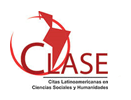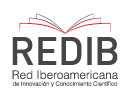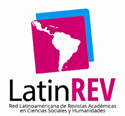From Aristotle to happiness in public policy in Peru. Reflections from a study across two strata
DOI:
https://doi.org/10.21142/DES-1202-2020-0028Keywords:
Happiness, public policies, subjective wellbeing, Aris totle, happiness policies, Happiness, public policies, subjective welbeing, Aristotle, happiness policiesAbstract
Over the last decades, happiness has become an important subject addressed by several disciplines, leading to reflection on its possible application in public policies. An interdisciplinary team of researchers has brought together the most common notions associated with happiness in Peru, based on interviews with heads of households in the poorest and the wealthiest districts in the country. This paper will examine those findings from the Aristotelian theoretical framework, in order to provide a theoretical basis for possible public policies. The classical Aristotelian or Eudaimonism theory distinguishes between superficial and more profound conceptions of happiness. This article asserts that policies oriented to happiness foster full lives that include access to health, education and employment, and the encouragement of citizen solidarity, while demythologizing the idea that poor people only need or want money in order to be happy.
Downloads
References
Aristóteles (1994). Metafísica. Madrid: Gredos.
Aristóteles (1998). Ética nicomaquea. Madrid: Gredos.
Aristóteles (2000). Partes de los animales. Madrid: Gredos. Aristóteles (2008). Política. Madrid: Gredos.
Bertelli, L. (1984). La Scholé aristotelica fra norma e prassi empírica. Aion, 6, pp. 97-129.
Bodenheimer, F. (1954). Aristotle the father of animal ecology. Homenaje a Millás-Vallicrosa, 1, pp. 165-181.
Barcelona: Consejo Superior de Investi gaciones Científicas.
Borisonik, H. (2011). Pensando el trabajo a través de Aristóteles. Astrolabio. Revista internacional de filosofía, 12, pp. 1-8.
Cabanas, E. e Illouz, E. (2019). Hapycracia. Cómo la ciencia y la industria de la felicidad controlan nuestras vidas. Barcelona: Paidós.
Crespo, R. y Mesurado, M. (2015). Happiness economics, eudaimonia and positive psychology: From happiness economics to flourishing economics. Journal of Happiness Studies 16(4), pp. 931-946. DOI: https://doi. org/10.1007/s10902-014-9541-4
De Prycker, V. (2010). Happiness on the political agenda? Pros and Cons. Journal of Happiness Studies, 11(5), pp. 585-603. DOI: https://doi. org/10.1007/s10902-010-9205-y
Duncan, G. (2010). Should Happiness-Maximization be the Goal of Gover nment? Journal of Happiness Studies, 11(2), pp. 163-178. DOI: https://doi. org/10.1007/s10902-008-9129-y
Giusti, M. (2019). El conflicto de las facultades. Sobre la universidad y el senti do de las humanidades. Barcelona y Lima: Anthropos y Fondo Editorial de la Pontificia Universidad Católica del Perú.
Gobierno del Perú (1993). Constitución Política del Perú. Recupe rado de https://www.gob.pe/institucion/presidencia/informes publicaciones/196158-constitucion-politica-del-peru
Habermas, J. (1998). Facticidad y validez. Madrid: Trotta.
Haybron, D y Tiberius, V. (2015). Well being policy: What standard of well being? Journal of the American Philosophical Association, 1(4), pp. 712-733. DOI: https://doi.org/10.1017/apa.2015.23
Helliwell, J., Layard, R. y Sachs, J. (Eds.) (2012). World Happiness Report 2012. New York: The Earth Institute - Columbia University.
Helliwell, J., Layard, R. y Sachs, J. (Eds.) (2015). World Happiness Report 2015. New York: The Earth Institute - Columbia University.
Helliwell, J., Layard, R. y Sachs, J. (Eds.) (2017). World Happiness Report 2017. New York: The Earth Institute - Columbia University.
Hernández, D. (2012). La escuela del ocio: tiempo libre y filosofía antigua. Cuadernos Hispanoamericanos, 747, pp. 77-99.
Hopenhayn, M. (2001). Repensar el trabajo. Historia, profusión y perspecti vas de un concepto. Buenos Aires: Norma.
INEI (2015). Mapa de pobreza provincial y distrital. Lima: INEI.
INEI (2018). Informe Nacional. Censos Nacionales 2017: XII de Población, VII de Vivienda y III de Comunidades Indígenas. Lima: INEI.
Mead, G. (1968). Espíritu, persona y sociedad. Buenos Aires: Paidós. Mill, J. (2014). El utilitarismo. Madrid: Alianza.
OCDE (2013). OECD Guidelines on Measuring Subjective Well-Being. París: OECD Publishing. DOI: http://doi.org/10.1787 /9789264191655-en
ONU (2011). Happiness: towards a holistic approach to development: reso lution / Adopted by the General Assembly. Recuperado de http://repository. un.org/handle/11176/291712
ONU (2015). Objetivos de Desarrollo Sostenible. Recuperado de https:// www.un.org/sustainabledevelopment/es/objetivos-de-desarrollo-soste nible/
Platón. (1988). República. Madrid: Gredos.
Prasoon, R. y Chaturvedi, K. (2016). Life satisfaction: A literature review. The Researcher- International Journal of Management Humanities and So cial Sciences, 1(2) pp. 25-32.
Rawls, J. (1995). Liberalismo político. Ciudad de México: Fondo de Cultura Económica.
RPP (2018). Ipsos | El 82% considera que la seguridad debe ser el tema principal en la campaña municipal en Lima. Recuperado de https://rpp. pe/lima/actualidad/ipsos-el-82-considera-que-la-seguridad-debe-ser-el tema-principal-en-la-campana-municipal-en-lima-noticia-1117592
Seligman, M. (2002). La auténtica felicidad. Barcelona: Ediciones B. Taylor, C. (1994). La ética de la autenticidad. Barcelona: Paidós.
Ura, K, Alkire, S y Zangmo, T. (2012). GNH and the GNH Index. Oxford Poverty & Human Development Initiative (OPHI). Recuperado de https://www.ophi. org.uk/wp-content/uploads/Ura-et-al-Bhutan-Happiness-Chapter.pdf
Veenhoven, R. (1997). Advances in understanding happiness. Revue Qué bécoise de Psychologie, 18, pp. 29-74.
Zaretsky, E. (1976). Capitalism, the family and personal life. New York: Har per & Row.
Downloads
Published
Issue
Section
License

Esta obra está bajo una licencia http://creativecommons.org/licenses/by-nc-sa/4.0/



















